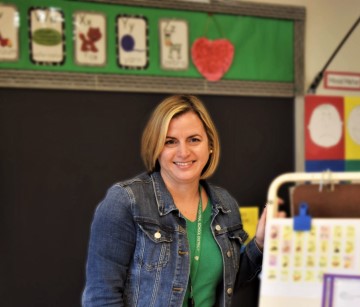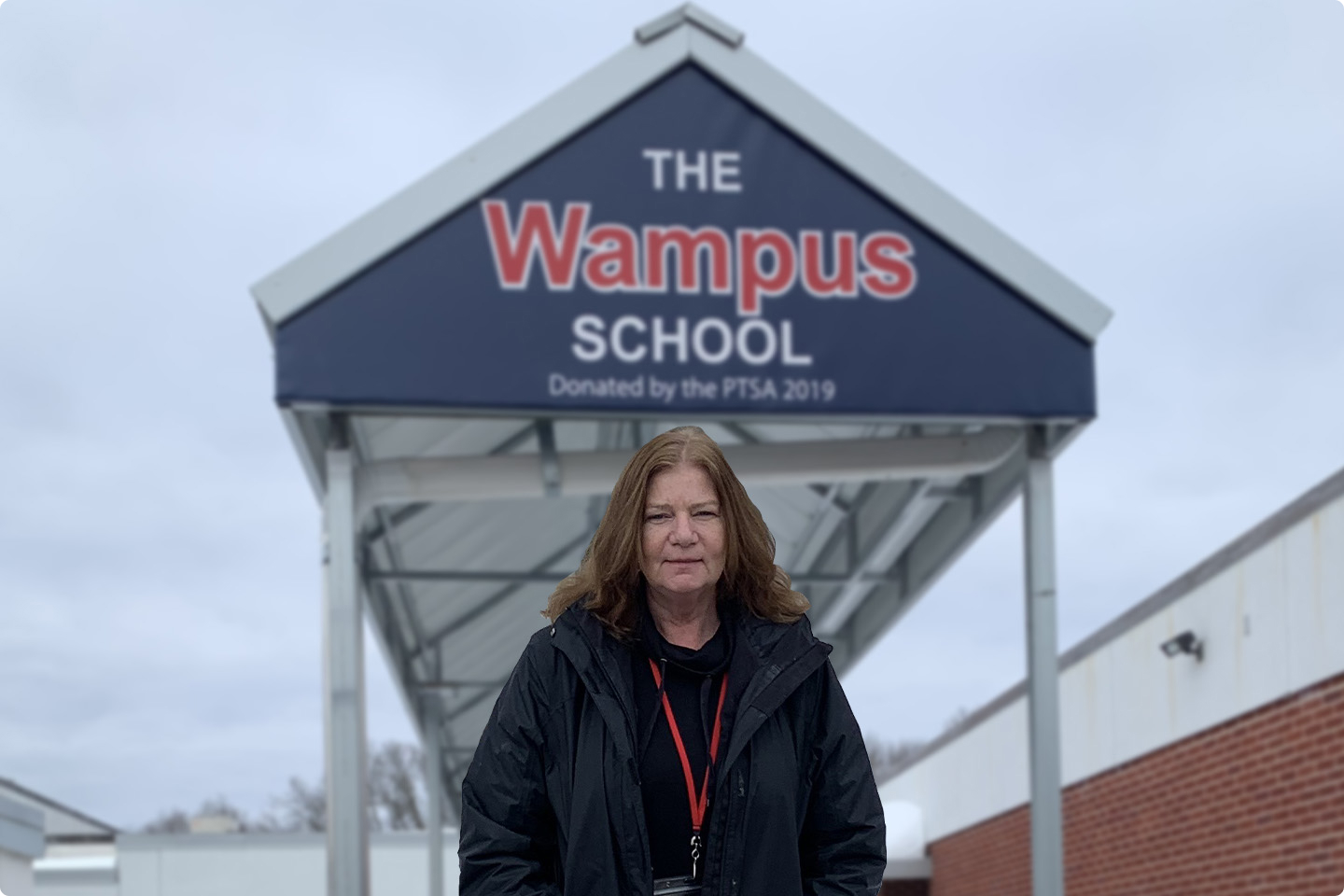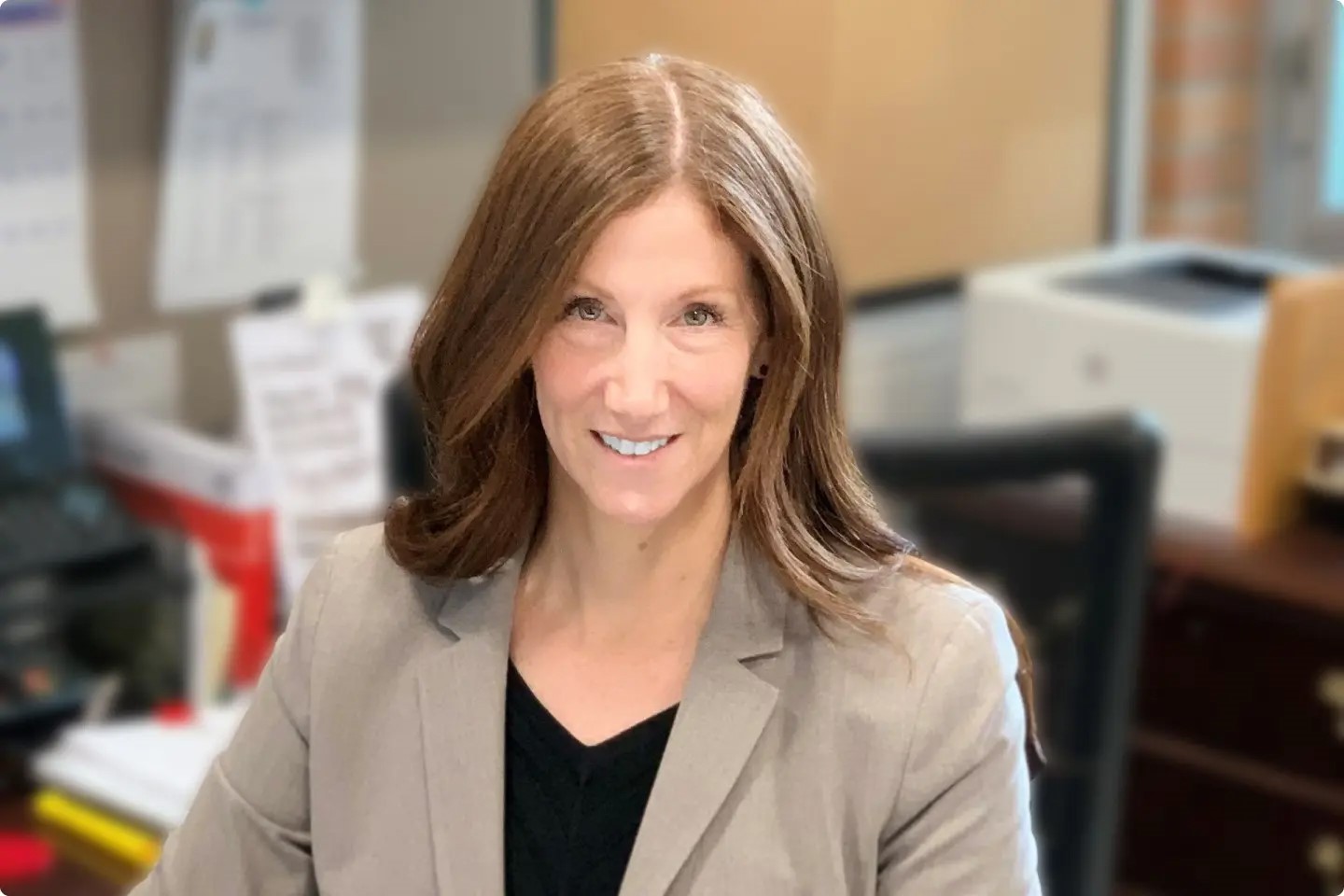
Karen O’brien has been an elementary educator since graduating from college 21 years ago, with degrees in Early Childhood and Special Education. She taught first grade in the New York City public schools for four years before moving to Brewster, NY, as a reading specialist, working in push-in and pull-out models of instruction. She found that she missed the lasting connection that classroom teachers have with their students and started teaching full-day kindergarten seven years ago. She was recently named Elementary Educator of the Year by the Brewster Education Foundation.
Was there a particular person or experience that inspired you to become a teacher (or pursue a role in education)?
It may sound silly, but I credit TV personalities Fred Rogers and LeVar Burton (host of Reading Rainbow) as my earliest inspirations to become a teacher. Both had a way of communicating to children with respect and dignity, and demonstrated a deep love of learning and reading. I watched both programs every day, and then practiced reading aloud to my dolls or baby brother when he let me.
What do you know today that you wish you had known during your first year of teaching?
That the best-laid plans often need to be altered on the fly, and that adaptability in key. We need to be responsive to our students’ needs on any given day. Although it is absolutely crucial to be well-planned and organized and plan well, students remember how you make them feel, much more than a beautifully created anchor chart or a dynamic lesson.
What is your teaching philosophy?
My philosophy is that all children are amazing human beings, capable of great things. I have high expectations for all of my students because I truly believe they will rise to those expectations with support and encouragement.
What do you think is the greatest challenge facing educators today?
With a huge shift to use of technology by younger and younger children (tablets, phones, etc.) we have observed that many students come to school without experience using crayons or scissors, of using playdoh or glue sticks. The same kids have difficulty maintaining stamina for tasks in school and need a good deal of support learning how to socialize with their peers. We are spending more time modeling and supporting these foundational skills for students at the beginning of the year.
At the same time, there’s been a definitive increase in academic expectations for our youngest learners. As educators with expertise in child development, it is important that we advocate for our students to ensure that work is both rigorous and developmentally appropriate.
What characteristics of your students do you appreciate the most? What makes them unique?
There is nothing like the curiosity, honesty, and love that four- to six-year-old students bring to EVERYTHING. They are usually game to try something new, as long as you assure them you do not expect them to “get it” the first time. My students make me feel loved and special every day, with their words and actions. It’s like being a rock star to 24 little groupies!
What aspects of being a kindergarten teacher do you find most enjoyable?
I get to see the “lightbulb” moment often throughout the year. There is nothing like the gratification you get as a teacher when you watch a student learn something new and feel so proud of themselves. It can be the smallest moments; the first time a student zips his coat on his own, or momentous, such as the first time a student wants to come up to the smartboard to read a word.
If using a particular teaching method: What are the advantages of this approach to teaching?
I most often use the workshop model throughout the day: I introduce a lesson to my whole class; I model the objective for students, demonstrating exactly what I mean; then students have an opportunity to give it a try with me while we are on the rug; and finally, I send the students off to try the activity in a small group, with a partner, or individually. This gradual release of responsibility supports students and gives them an opportunity for guided practice before I ever expect them to work independently.
What aspects of your job are the most challenging or stressful and how do you manage them?
When students have difficult home situations and trauma. It is especially challenging because you can’t “turn off” your concern at the end of the day. I have found that speaking with my colleagues, friends and family is most helpful. We need to practice “self-care” as teachers, and our grade-level teams are so important to that end. Your colleagues know what you are going through and will often be the best sources of advice and encouragement.
Can you tell us how you keep your creative energy? Where do you find your inspiration?
There are so many great sources out there for elementary educators. Pinterest is awesome for getting ideas for crafts and lessons. I follow so many teacher bloggers who also use platforms such as Instagram to share ideas. Facebook has teacher groups by grade level you can join to get ideas and communicate with teachers across the country.
How do you use technology as a tool for learning in your classroom? What online tools have you found to be the most helpful for managing your work?
I use my interactive SMARTboard and document camera most throughout the day. Our district has adopted ClassLink which houses all of our curriculum and other resources in one place. We use Google Drive to store our files and resources, so they can be accessed from home and school at all times. Our older grades use Google Classroom, but it hasn’t yet reached us in kindergarten.
Can you recommend strategies or techniques for teachers who are striving to be lifelong learners?
There are always so many changes to our elementary curriculum, it is hard for any early childhood educator NOT to be a lifelong learner. I continue to read professional articles from Education Week & Educational Leadership magazines. My principals have always shared articles of interest with our staff and take advantage of other people’s expertise.
What advice would you give a high school or college student who is considering a similar career path?
Find ways to volunteer with students. The best way to know that you love working with kids (the number one prerequisite for this job!) is to spend time with them. Any time you spend – babysitting, working as a camp counselor, coaching, tutoring, etc., is good preparation.





